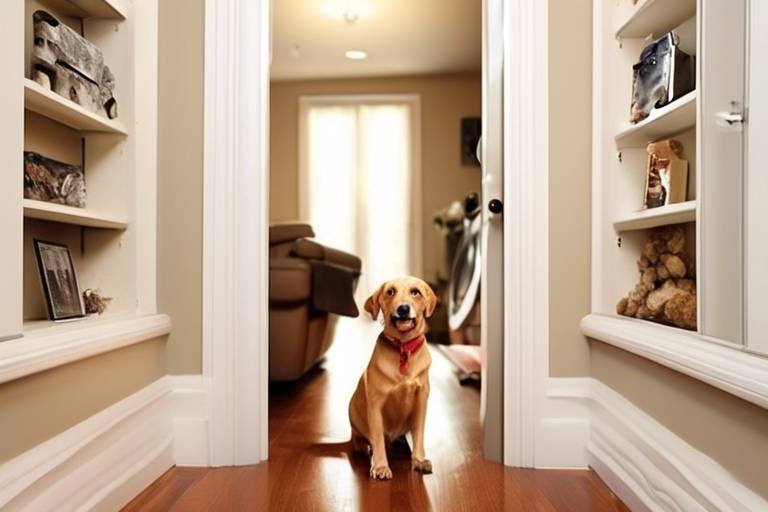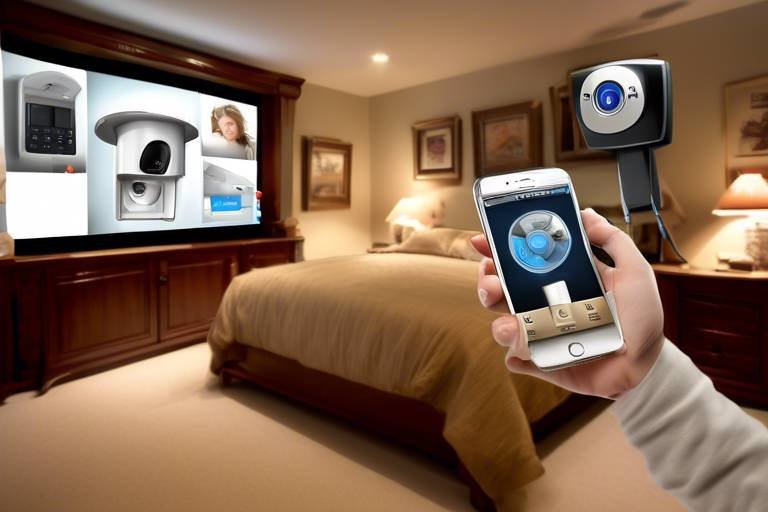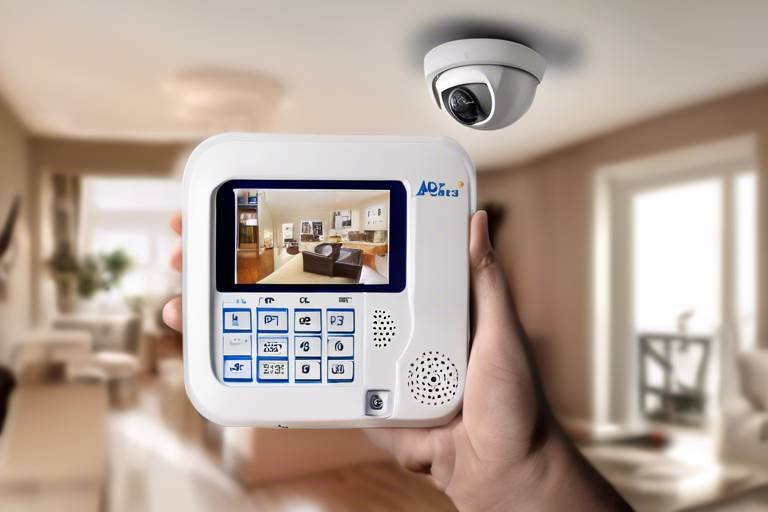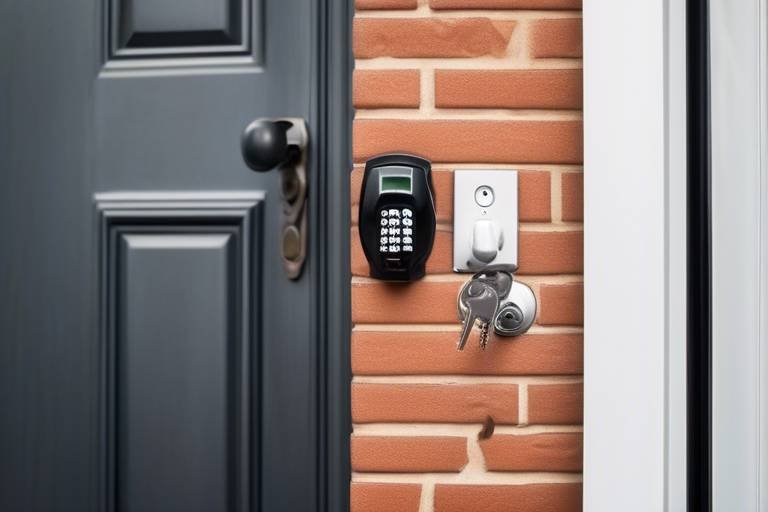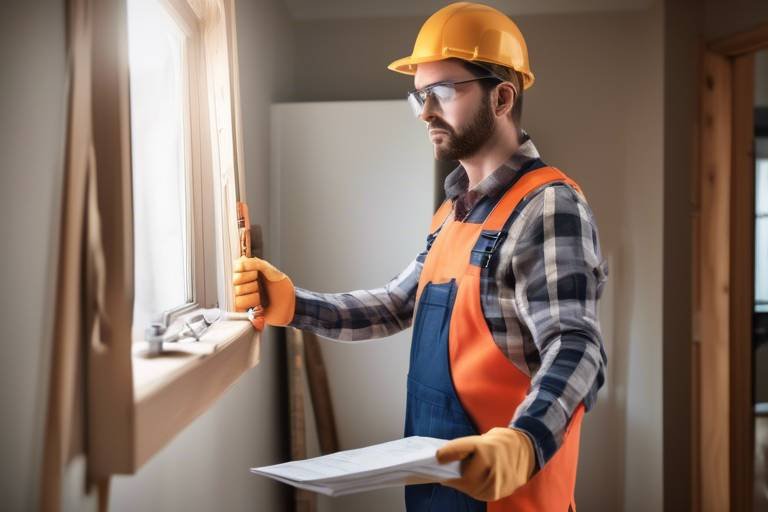Is a Home Safety Inspection Really Necessary
When it comes to our homes, we often think about aesthetics, comfort, and style. But have you ever stopped to consider the safety of your living environment? A home is more than just a place to lay your head; it’s a sanctuary for you and your loved ones. That's why a home safety inspection is not just a luxury—it's a necessity. Imagine living in a house that seems perfect on the surface, yet hides potential dangers lurking in the shadows. This article explores the importance of home safety inspections, the benefits they offer, and how they can help homeowners maintain a safe living environment for their families.
Home safety inspections are crucial for identifying potential hazards in a home. They act as a proactive measure, helping to ensure the safety of residents and can prevent accidents before they occur. Think of it like a regular check-up for your house—just as we visit the doctor to catch health issues early, a home inspection serves the same purpose for your living space. By identifying problems like faulty wiring, gas leaks, or structural weaknesses, homeowners can take action before these issues escalate into dangerous situations.
Many homes contain hidden dangers, such as faulty wiring or mold. Understanding these common hazards is vital for homeowners looking to protect their families and property. For instance, did you know that mold can not only damage your home but also pose serious health risks? It's essential to be aware of these potential threats. Here are some common hazards homeowners should be vigilant about:
- Electrical Hazards: Issues like outdated wiring and overloaded circuits can lead to fires or electrocution.
- Fire Safety: Lack of smoke detectors and fire extinguishers can have dire consequences.
- Mold Growth: Often hidden in damp areas, mold can severely impact air quality.
Electrical issues can lead to fires or electrocution, making them a top concern for homeowners. Regular inspections help identify outdated wiring, overloaded circuits, and other electrical problems that may pose risks. Imagine the peace of mind you'll feel knowing that your home’s electrical system is safe and up to code. It’s like ensuring your car’s brakes are in perfect condition before hitting the road!
Faulty wiring is a significant fire hazard. A thorough inspection can reveal damaged wires, improper installations, and other issues that need immediate attention. Think of your electrical system as the nervous system of your home; if there’s a fault, it can lead to serious consequences. By identifying these problems early, you can save yourself from the chaos of a fire and the emotional toll it brings.
Overloaded circuits can cause overheating and fires. Inspections help homeowners understand their electrical load and make necessary adjustments to prevent hazards. It’s like trying to fit too many groceries in a small bag—eventually, something’s going to give! Regular checks can help you manage your electrical demands efficiently.
Fire safety is a critical aspect of home inspections. Ensuring smoke detectors and fire extinguishers are in place can save lives in emergencies. Just like you wouldn’t drive a car without seat belts, you shouldn’t live in a home without adequate fire safety measures. Regular inspections can help ensure these life-saving devices are functioning correctly, providing an extra layer of security for your family.
Regular home safety inspections offer numerous benefits, including peace of mind, improved home value, and reduced insurance premiums. They can also help identify maintenance needs before they become costly repairs. Think about it: a small investment in an inspection today can save you thousands in repairs tomorrow! Who wouldn’t want that kind of assurance?
Knowing that a home is safe provides homeowners with peace of mind. Inspections can alleviate worries about potential hazards and enhance overall comfort. It’s like having a safety net; you can go about your daily life without the nagging fear of something going wrong.
A well-maintained home is more valuable. Regular inspections demonstrate responsible ownership, making a property more appealing to potential buyers. If you ever decide to sell, you’ll be able to present a home that’s not just beautiful but also safe and well-cared for. It’s like showing off a shiny new car that’s been regularly serviced—it just adds to the allure!
Selecting a qualified inspector is crucial for a thorough safety assessment. Homeowners should consider experience, certifications, and reviews when choosing a professional for their inspection needs. It’s important to do your homework before hiring someone to ensure you’re getting the best service possible.
Home inspectors should have relevant certifications and experience. Understanding what qualifications matter can help homeowners make informed decisions. Look for inspectors who are licensed and have a solid reputation in your community. This is like choosing a doctor; you want someone who knows what they’re doing!
Before hiring an inspector, homeowners should ask specific questions about their process, experience, and what to expect during the inspection. This ensures a smooth and informative experience. Think of it as preparing for a job interview—you wouldn’t go in blind, right? Here are a few questions to consider:
- What certifications do you hold?
- Can you provide references from past clients?
- What does your inspection process entail?
1. How often should I have a home safety inspection?
It’s recommended to have a home safety inspection at least once every year, or more frequently if you live in an older home.
2. What should I expect during a home safety inspection?
An inspector will evaluate various aspects of your home, including electrical systems, plumbing, structural integrity, and fire safety measures.
3. Can I perform my own home safety inspection?
While you can do a preliminary check, it’s best to hire a professional for a thorough assessment.

The Importance of Home Safety Inspections
This article explores the importance of home safety inspections, the benefits they offer, and how they can help homeowners maintain a safe living environment for their families.
Home safety inspections are not just a luxury; they are a necessity for every homeowner. Imagine living in a space where potential hazards lurk behind every corner, waiting for the right moment to cause an accident. Home safety inspections act as a shield, identifying those hidden dangers before they can wreak havoc on your life. They help ensure the safety of residents and can prevent accidents before they occur.
Consider this: every year, thousands of injuries and fatalities occur in homes due to preventable hazards. A home safety inspection can significantly reduce these risks. By examining various aspects of your home, from structural integrity to electrical systems, these inspections provide a comprehensive overview of your living environment. They enable homeowners to take proactive steps in addressing issues that could lead to significant problems down the line.
Furthermore, home safety inspections can uncover issues that may not be immediately visible. For instance, mold growth can be hidden behind walls, and faulty wiring might only show signs of trouble when it’s too late. By investing in a regular inspection, you are essentially investing in your family's safety. Not only does this protect your loved ones, but it also helps in maintaining the value of your property.
In addition to safety, these inspections foster a sense of responsibility and awareness among homeowners. They encourage individuals to stay informed about the condition of their home and to take action when needed. In a world where we often overlook the small things, a home safety inspection serves as a reminder that our living spaces require attention and care.
In summary, the importance of home safety inspections cannot be overstated. They are crucial for identifying potential hazards, ensuring the safety of residents, and maintaining the integrity of your home. By prioritizing these inspections, you are not only protecting your family but also enhancing the overall quality of your living environment.
Many homes contain hidden dangers, such as faulty wiring or mold. Understanding these common hazards is vital for homeowners looking to protect their families and property.
Electrical issues can lead to fires or electrocution. Regular inspections help identify outdated wiring, overloaded circuits, and other electrical problems that may pose risks.
Faulty wiring is a significant fire hazard. A thorough inspection can reveal damaged wires, improper installations, and other issues that need immediate attention.
Overloaded circuits can cause overheating and fires. Inspections help homeowners understand their electrical load and make necessary adjustments to prevent hazards.
Fire safety is a critical aspect of home inspections. Ensuring smoke detectors and fire extinguishers are in place can save lives in emergencies.
Regular home safety inspections offer numerous benefits, including peace of mind, improved home value, and reduced insurance premiums. They can also help identify maintenance needs before they become costly repairs.
Knowing that a home is safe provides homeowners with peace of mind. Inspections can alleviate worries about potential hazards and enhance overall comfort.
A well-maintained home is more valuable. Regular inspections demonstrate responsible ownership, making a property more appealing to potential buyers.
Selecting a qualified inspector is crucial for a thorough safety assessment. Homeowners should consider experience, certifications, and reviews when choosing a professional for their inspection needs.
Home inspectors should have relevant certifications and experience. Understanding what qualifications matter can help homeowners make informed decisions.
Before hiring an inspector, homeowners should ask specific questions about their process, experience, and what to expect during the inspection. This ensures a smooth and informative experience.
1. How often should I get a home safety inspection?
It’s recommended to have a home safety inspection at least once a year or before significant changes, such as buying or selling a home.
2. What should I expect during a home safety inspection?
An inspector will evaluate various aspects of your home, including electrical systems, plumbing, structural integrity, and safety features like smoke detectors.
3. Can I do a home safety inspection myself?
While you can perform a basic check, hiring a professional ensures a thorough evaluation and the identification of hidden issues.
4. How much does a home safety inspection cost?
Costs can vary based on location and the size of your home, but they typically range from $300 to $500.
5. What are the most common hazards found during inspections?
Common hazards include faulty wiring, mold, outdated smoke detectors, and plumbing leaks.

Common Hazards Found in Homes
When it comes to our homes, we often think of them as safe havens. However, lurking beneath the surface are hidden dangers that can jeopardize the safety of our families. Understanding these hazards is essential for homeowners who want to create a secure living environment. From faulty wiring to mold growth, these common issues can lead to serious consequences if left unchecked. Let's dive into some of the most prevalent hazards found in homes today.
One of the most alarming hazards is electrical issues. These problems can easily lead to devastating fires or even electrocution. Think about it: how many times have you noticed flickering lights or outlets that feel warm to the touch? Regular inspections can help identify potential electrical problems, such as:
- Outdated wiring that fails to meet current safety standards.
- Overloaded circuits that can cause overheating.
- Improper installations that might not be up to code.
Another significant concern is fire safety. Ensuring that smoke detectors are functioning and that fire extinguishers are readily available can be the difference between life and death in an emergency. Did you know that many homes lack the proper number of smoke detectors? This is a critical oversight that can have dire consequences. Regular inspections help homeowners stay ahead of the curve by ensuring that all fire safety measures are in place and operational.
Additionally, many homes harbor mold, which often goes unnoticed until it becomes a serious problem. Mold can thrive in damp areas, such as basements and bathrooms, and can cause health issues, especially for those with allergies or respiratory problems. Regular inspections can help identify moisture problems and prevent mold growth before it gets out of hand.
In summary, understanding the common hazards found in homes is crucial for maintaining a safe living environment. By being proactive and scheduling regular home safety inspections, homeowners can identify and address these issues before they escalate into serious problems. It's all about creating a secure haven for your loved ones!
Q: How often should I have a home safety inspection?
A: It's recommended to have a home safety inspection at least once a year, or more frequently if you have an older home or have made significant changes to your property.
Q: What should I expect during a home safety inspection?
A: A home safety inspection typically includes a thorough examination of electrical systems, plumbing, fire safety measures, and structural integrity. Your inspector will provide a detailed report of any findings.
Q: Can I perform my own home safety inspection?
A: While you can certainly check for visible issues, it's best to hire a qualified inspector who has the expertise and tools to identify hidden hazards.
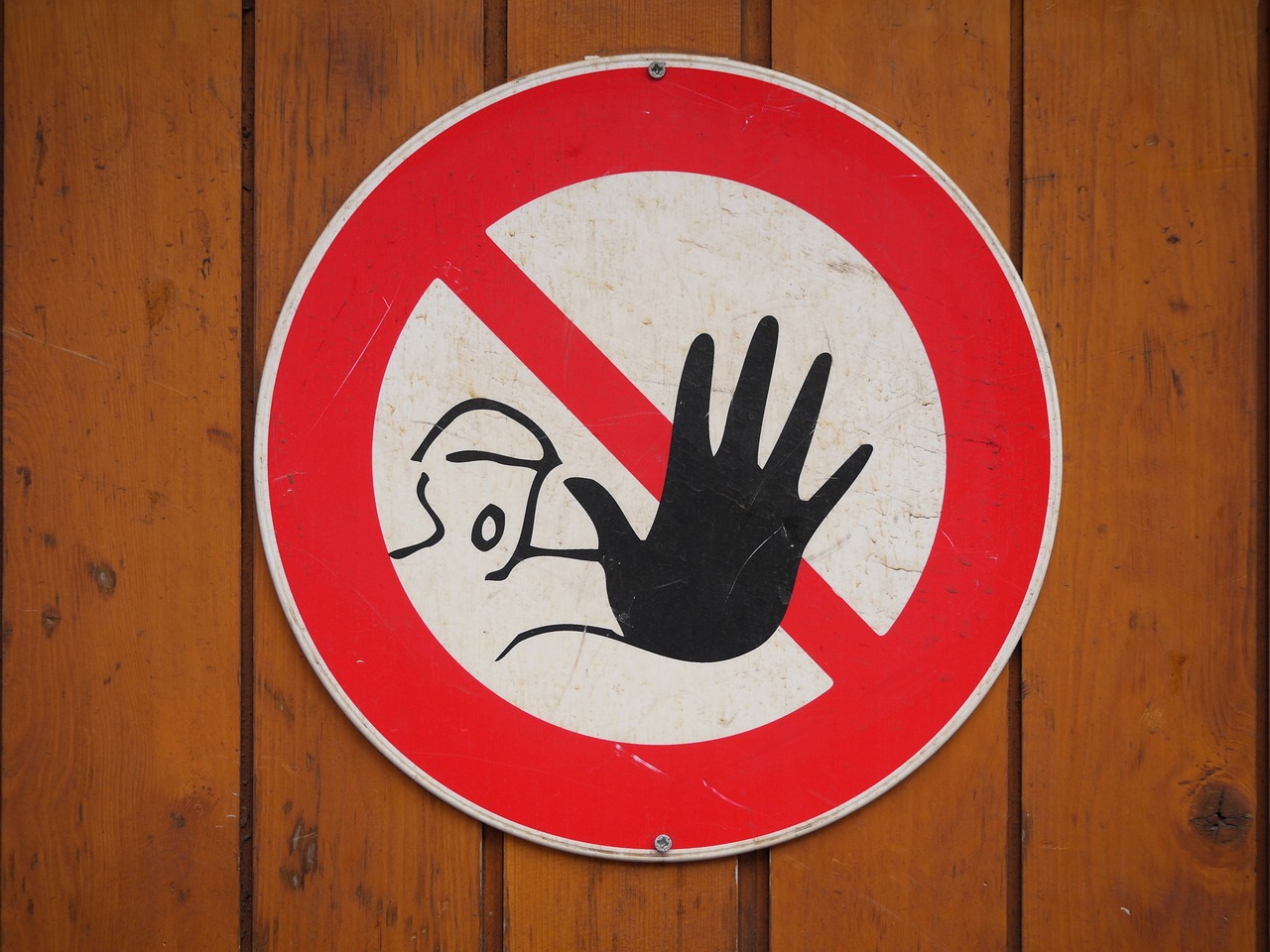
Electrical Hazards
When it comes to home safety, are often lurking in the shadows, waiting for the right moment to strike. Many homeowners underestimate the risks associated with their electrical systems, thinking that as long as the lights are on, everything is fine. But, just like a wolf in sheep's clothing, potential electrical issues can be hidden beneath the surface, ready to cause chaos. Regular home safety inspections are essential to uncover these hidden dangers and protect your family.
One of the most alarming aspects of electrical hazards is that they can lead to devastating fires or even tragic electrocutions. Imagine waking up in the middle of the night to the smell of smoke or the sound of crackling wires—it's a nightmare no one wants to experience. By proactively identifying and addressing electrical issues, homeowners can significantly reduce the risk of such disasters. Here are some common electrical hazards that inspections can reveal:
- Outdated Wiring: Older homes often have wiring that doesn't meet current safety standards, increasing the risk of electrical fires.
- Overloaded Circuits: Plugging too many devices into one outlet can cause overheating and fires.
- Improper Installations: DIY electrical work might save money, but it can lead to dangerous situations if not done correctly.
Identifying these hazards during an inspection can save lives and property. For instance, a thorough inspection can reveal faulty wiring—one of the most significant fire hazards in a home. Damaged wires can cause sparks, which can ignite nearby materials. It’s crucial to have a qualified inspector assess the wiring to ensure it’s in good condition. They will look for signs of wear and tear, such as frayed wires or corrosion, which can indicate that it’s time for an upgrade or repair.
Another critical aspect of electrical safety is recognizing overloaded circuits. Many homeowners don’t realize that each circuit in their home has a specific load capacity. When too many devices are plugged into one circuit, it can lead to overheating, which is a recipe for disaster. Inspections can help homeowners understand their electrical load and make necessary adjustments. For example, if an inspector finds that a particular circuit is consistently overloaded, they may recommend redistributing devices across multiple circuits to prevent overheating.
In summary, electrical hazards are a serious concern that should never be overlooked. Regular home safety inspections are your best defense against these hidden dangers. By identifying faulty wiring and overloaded circuits, homeowners can take proactive steps to protect their families and homes from potential disasters. Remember, a little prevention goes a long way in ensuring a safe living environment.
Q: How often should I have a home safety inspection?
A: It's recommended to have a home safety inspection at least once every few years, or sooner if you notice any issues with your electrical systems.
Q: Can I perform a home safety inspection myself?
A: While you can check for obvious signs of problems, it's best to hire a qualified inspector for a thorough assessment, as they have the expertise to identify hidden hazards.
Q: What should I do if my inspector finds electrical hazards?
A: If hazards are identified, it's crucial to address them immediately. Consult a licensed electrician to make the necessary repairs or upgrades.
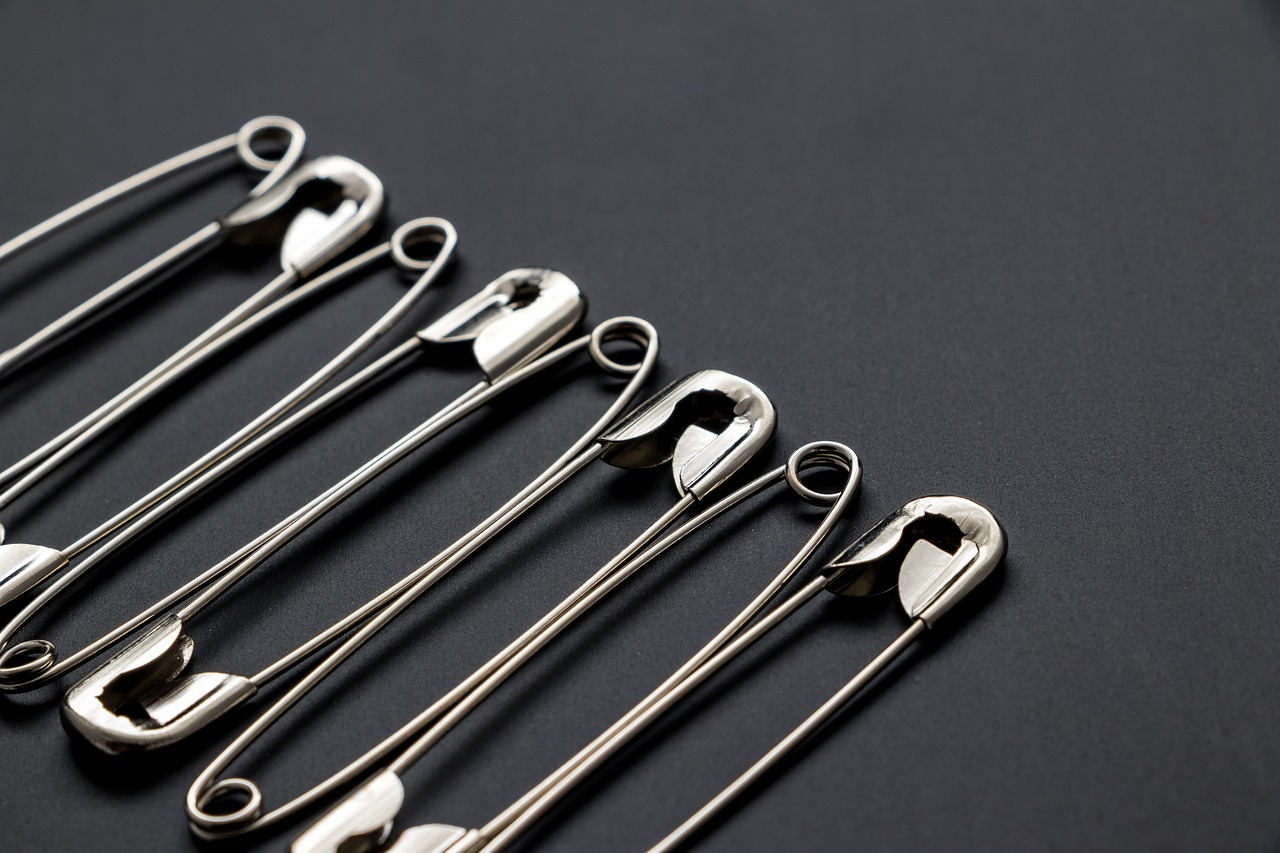
Identifying Faulty Wiring
Identifying faulty wiring in your home is not just a matter of convenience; it’s a matter of safety. Faulty wiring can lead to severe consequences, including electrical fires, which can devastate your home and put your family at risk. So, how do you spot these hidden dangers lurking behind your walls? First, it’s essential to understand the signs that indicate potential wiring issues. These signs can range from simple visual cues to more complex electrical behaviors.
One of the most common indicators of faulty wiring is frequent tripping of circuit breakers. If you find yourself resetting breakers more often than usual, it may signal that your circuits are overloaded or that there’s a fault somewhere in the system. Additionally, pay attention to any strange odors, such as a burning smell, which can indicate that wires are overheating. This is a serious warning sign that should never be ignored.
Another key aspect to consider is the age of your wiring. If your home is older and hasn’t undergone any electrical upgrades, it might be time to evaluate the condition of your wiring. Older homes often have outdated systems that may not meet current safety standards. In fact, many electrical fires are caused by old or damaged wiring. So, if your home is more than 30 years old, it’s wise to have a professional inspection.
Here are some specific issues to look for when assessing your home’s wiring:
- Exposed or frayed wires: These are visible signs that can lead to serious hazards.
- Loose connections: If you notice flickering lights or outlets that don’t work consistently, it could be due to loose wiring.
- Discolored outlets or switches: This can indicate overheating and should be addressed immediately.
When it comes to identifying faulty wiring, it’s crucial to be proactive. Regular inspections can help catch these issues before they escalate into dangerous situations. If you suspect any wiring problems, don’t hesitate to contact a qualified electrician. They can conduct a thorough inspection and provide the necessary solutions to ensure your home is safe and sound.
Q: How often should I have my home wiring inspected?
A: It’s recommended to have your wiring inspected at least every 5 years, or sooner if you notice any issues.
Q: What are the signs of faulty wiring?
A: Signs include frequent circuit breaker trips, burning smells, flickering lights, and discolored outlets.
Q: Can I inspect my home wiring myself?
A: While you can look for visible signs, it’s best to hire a qualified electrician for a comprehensive inspection.
Q: What should I do if I find faulty wiring?
A: Contact a licensed electrician immediately to assess and repair the issue.

Recognizing Overloaded Circuits
Overloaded circuits are a serious concern for any homeowner, and recognizing the signs early can prevent devastating consequences, such as electrical fires. Imagine your circuit as a busy highway; when too many vehicles (or electrical devices) are trying to use the same lane, traffic jams occur, leading to a breakdown. In the case of electrical systems, this breakdown can result in overheating, which not only damages your wiring but also poses a significant fire risk.
So, how do you know if your circuits are overloaded? Here are some common indicators that you should keep an eye out for:
- Frequent Circuit Breaker Trips: If your circuit breaker trips often, it’s a clear sign that the circuit is overloaded. Breakers are designed to protect your home by shutting off power when the current exceeds safe levels.
- Warm or Hot Outlets: Touching your outlets and finding them warm or hot to the touch is a serious red flag. This indicates that the wiring is working harder than it should be, which can lead to overheating.
- Flickering Lights: If your lights flicker or dim when you plug in another device, it’s a sign that your circuit is struggling to handle the load. This fluctuation in power can be a precursor to more significant electrical issues.
- Burning Smell: If you ever smell something burning near your outlets or electrical devices, turn off the power immediately and call a professional. This smell is often a sign of overheating wiring.
To prevent overloaded circuits, it’s essential to distribute your electrical load wisely. Consider the following tips:
- **Avoid plugging too many devices into a single outlet.** Use power strips with surge protection if necessary, but be mindful of how many devices you connect.
- **Identify high-wattage appliances** and plug them directly into wall outlets rather than sharing circuits with other devices.
- **Consider upgrading your electrical system** if you frequently experience overloads, especially in older homes where the wiring may not meet modern demands.
By recognizing the signs of overloaded circuits and taking proactive measures, you can ensure the safety of your home and family. Regular inspections and awareness of your electrical system's limitations are key to preventing hazards and maintaining a secure living environment.
Q: What should I do if I suspect my circuits are overloaded?
A: If you suspect an overload, immediately unplug devices from the affected outlet and avoid using it until a qualified electrician can assess the situation.
Q: How often should I have my electrical system inspected?
A: It's recommended to have your electrical system inspected every few years, or more frequently if you notice any signs of overload or other issues.
Q: Can I fix overloaded circuits myself?
A: While some minor electrical issues can be addressed by homeowners, it’s best to consult a licensed electrician for any concerns about overloaded circuits to ensure safety and compliance with local codes.

Fire Safety Measures
This article explores the importance of home safety inspections, the benefits they offer, and how they can help homeowners maintain a safe living environment for their families.
Home safety inspections are crucial for identifying potential hazards in a home. They help ensure the safety of residents and can prevent accidents before they occur.
Many homes contain hidden dangers, such as faulty wiring or mold. Understanding these common hazards is vital for homeowners looking to protect their families and property.
Electrical issues can lead to fires or electrocution. Regular inspections help identify outdated wiring, overloaded circuits, and other electrical problems that may pose risks.
Faulty wiring is a significant fire hazard. A thorough inspection can reveal damaged wires, improper installations, and other issues that need immediate attention.
Overloaded circuits can cause overheating and fires. Inspections help homeowners understand their electrical load and make necessary adjustments to prevent hazards.
Fire safety is a critical aspect of home inspections. Ensuring smoke detectors and fire extinguishers are in place can save lives in emergencies. Imagine this: you're cozying up on your couch when suddenly, the smell of smoke wafts through the air. Wouldn't you want to know that your home is equipped to handle such a situation? Regular inspections can help you ensure that your fire safety measures are up to par.
First and foremost, every home should have working smoke detectors installed in key areas such as:
- Bedrooms
- Hallways
- Living rooms
- Kitchen
These detectors serve as your first line of defense against fire hazards. It’s essential to test them monthly and replace batteries at least once a year. Additionally, consider upgrading to interconnected smoke detectors, which will alert you throughout the house if one unit detects smoke.
Another vital component of fire safety is having accessible fire extinguishers. They should be placed in easily reachable spots, especially in areas prone to fires, like the kitchen and garage. Homeowners should also familiarize themselves with how to use them effectively. A fire extinguisher is only useful if you know how to operate it under pressure!
Furthermore, conducting a fire drill with your family can be invaluable. This ensures that everyone knows the escape routes and what to do in case of a fire emergency. It’s a simple step that can make a significant difference in ensuring everyone's safety.
In summary, fire safety measures are not just about having equipment; they are about being prepared and proactive. Regular home safety inspections can help identify areas that need improvement, ensuring that your home is a safe haven for you and your loved ones.
Regular home safety inspections offer numerous benefits, including peace of mind, improved home value, and reduced insurance premiums. They can also help identify maintenance needs before they become costly repairs.
Knowing that a home is safe provides homeowners with peace of mind. Inspections can alleviate worries about potential hazards and enhance overall comfort.
A well-maintained home is more valuable. Regular inspections demonstrate responsible ownership, making a property more appealing to potential buyers.
Selecting a qualified inspector is crucial for a thorough safety assessment. Homeowners should consider experience, certifications, and reviews when choosing a professional for their inspection needs.
Home inspectors should have relevant certifications and experience. Understanding what qualifications matter can help homeowners make informed decisions.
Before hiring an inspector, homeowners should ask specific questions about their process, experience, and what to expect during the inspection. This ensures a smooth and informative experience.
Q: How often should I have a home safety inspection?
A: It's recommended to have a thorough inspection at least once a year, or more frequently if you notice any signs of wear and tear.
Q: Can I perform a safety inspection myself?
A: While you can check some basic safety features, hiring a professional ensures a comprehensive assessment of potential hazards.
Q: What should I do if hazards are found during an inspection?
A: Address any issues immediately. Prioritize repairs based on the severity of the hazards identified.
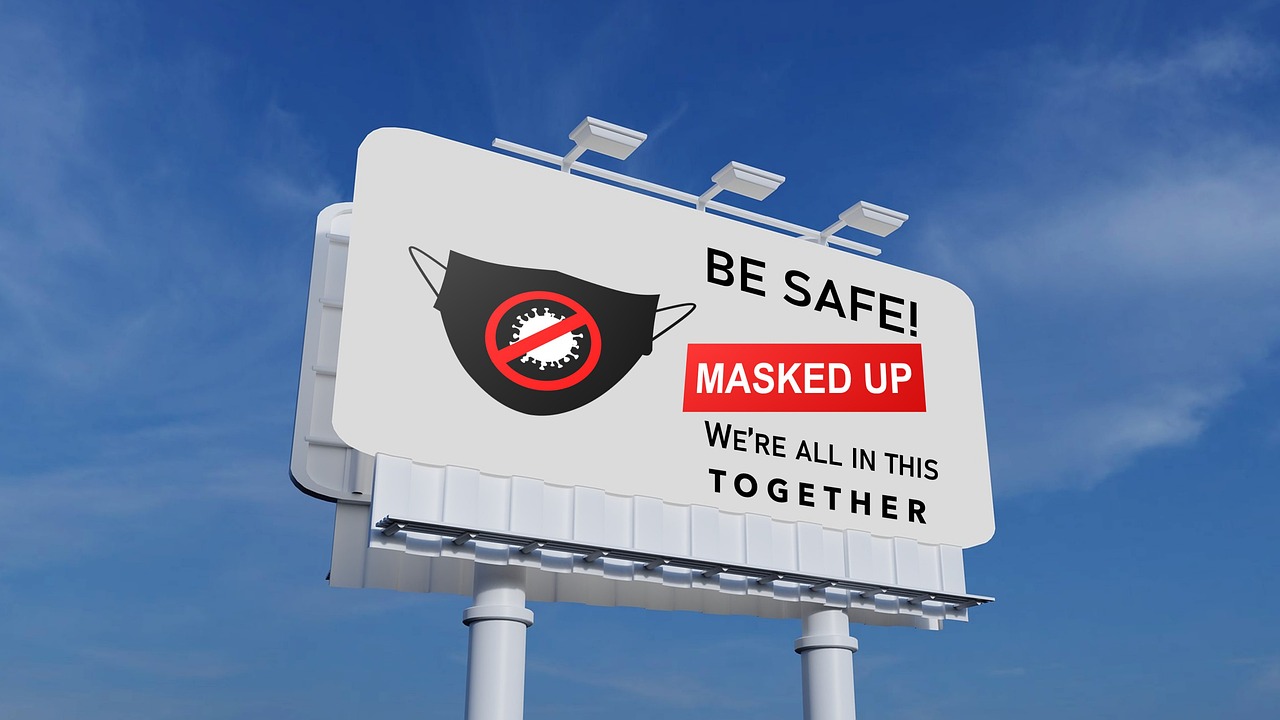
Benefits of Regular Inspections
Regular home safety inspections are not just a good idea; they are a vital part of responsible homeownership. Think of your home as a living organism; it requires regular check-ups to ensure everything is functioning properly. Just like you wouldn’t ignore a persistent cough, you shouldn’t overlook the potential hazards lurking in your home. Regular inspections provide numerous benefits that can enhance your living experience and protect your investment.
One of the most significant advantages of scheduling regular home safety inspections is the peace of mind it offers. Knowing that your home is safe from potential hazards allows you to focus on what truly matters—spending time with your family and enjoying your space. Imagine being able to relax in your living room without worrying about whether your electrical system is up to code or if there’s hidden mold in the basement. This comfort can be invaluable and is often worth the investment in regular inspections.
Additionally, regular inspections can lead to an improvement in home value. A well-maintained home is always more appealing to potential buyers. When you demonstrate responsible ownership through consistent inspections and maintenance, you not only protect your current living environment but also enhance the property’s marketability. If you ever decide to sell, potential buyers will appreciate the transparency of a well-documented inspection history, which can lead to better offers.
Moreover, regular inspections can help reduce insurance premiums. Many insurance companies offer discounts for homes that have undergone safety inspections. By identifying and addressing potential risks, you not only lower your chances of filing a claim but also demonstrate to your insurer that you are proactive about home safety. It’s a win-win situation—saving money while ensuring your home is secure.
Lastly, regular inspections can help identify maintenance needs before they escalate into costly repairs. For instance, a small leak in a roof might go unnoticed until it causes significant damage to the interior of your home. By catching such issues early, you can save yourself a lot of hassle and expense down the line. Think of it as a preventive measure, much like getting regular oil changes for your car. It’s all about keeping everything running smoothly.
In summary, the benefits of regular home safety inspections extend far beyond mere compliance with regulations. They provide peace of mind, improve home value, potentially lower insurance costs, and help prevent expensive repairs. So, why wait? Investing in regular inspections is investing in your home and your family’s safety.
- How often should I schedule a home safety inspection? It’s recommended to have an inspection at least once a year, but more frequent checks may be needed for older homes or after significant changes.
- What does a home safety inspection typically include? Inspections usually cover electrical systems, plumbing, roof integrity, HVAC systems, and potential environmental hazards like mold or radon.
- Can I perform a home safety inspection myself? While you can do a preliminary check, it's advisable to hire a qualified inspector for a thorough assessment.
- What should I do if hazards are found during an inspection? Address them as soon as possible, either by making the repairs yourself or hiring a professional to ensure safety.
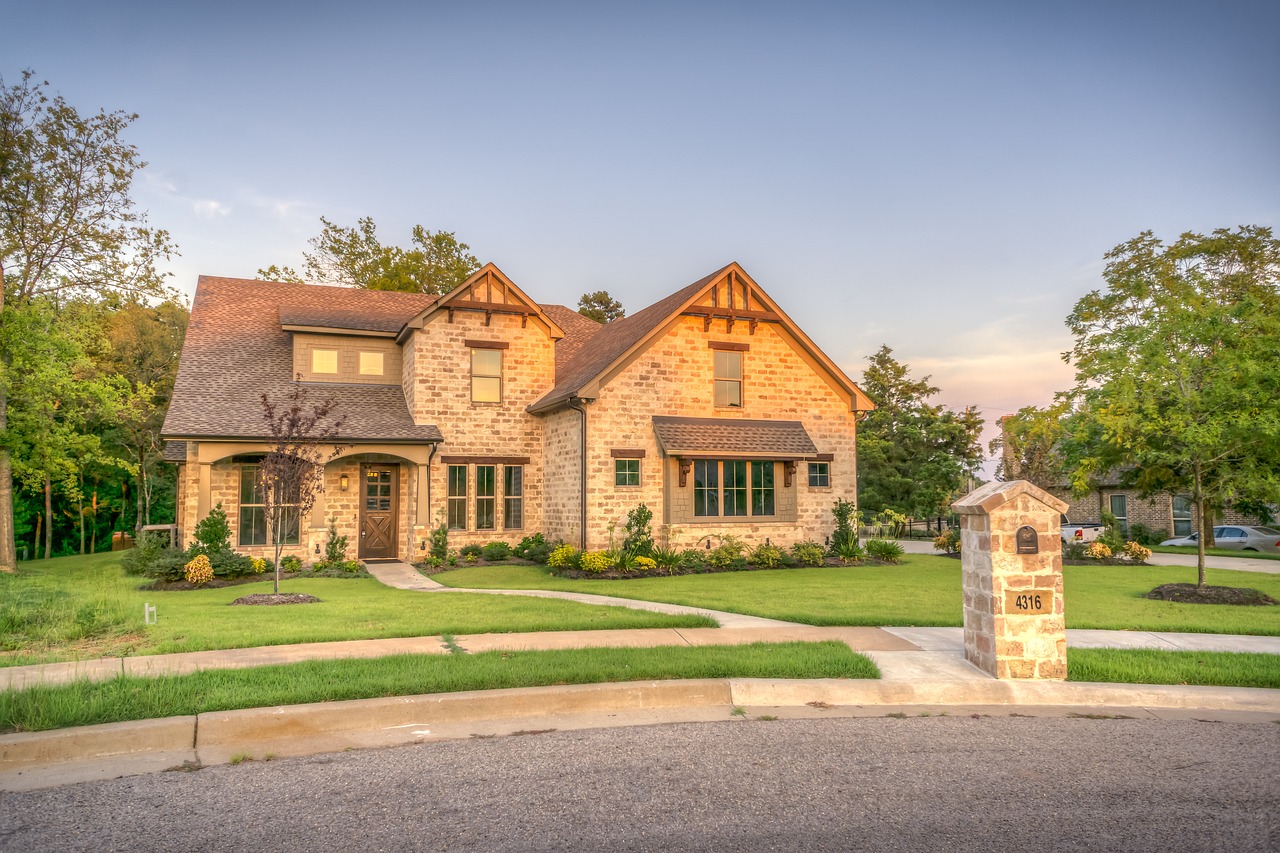
Peace of Mind for Homeowners
When it comes to our homes, the feeling of safety is paramount. Imagine walking through your front door and knowing that your family is protected from potential hazards lurking in the shadows. This is the kind of peace of mind that a thorough home safety inspection can provide. Homeowners often find themselves worrying about various risks, from electrical issues to fire hazards. By investing in regular inspections, you can alleviate those worries and focus on what truly matters—enjoying your home with your loved ones.
Think about it: how often do we overlook the subtle signs of danger? A flickering light, a strange smell, or even a damp patch on the wall can often be dismissed as minor inconveniences. However, these seemingly insignificant details can lead to major problems if left unchecked. A home safety inspection acts as a comprehensive check-up for your living space, identifying potential threats before they escalate into serious issues.
Moreover, the reassurance that comes from knowing your home is safe can significantly enhance your overall comfort. You can rest easy knowing that you’ve taken proactive steps to protect your family. It’s like having a safety net—one that catches you before you fall. This peace of mind is especially crucial for families with young children or elderly members, who may be more vulnerable to household hazards.
In addition to emotional comfort, regular inspections can also lead to financial savings. By identifying and addressing issues early, you can avoid costly repairs down the line. After all, it’s much easier to replace a faulty smoke detector than to deal with the aftermath of a fire. This preventive approach not only protects your loved ones but also safeguards your investment in your home.
So, if you’re still on the fence about whether a home safety inspection is worth it, consider the benefits it brings. It’s not just about fixing problems; it’s about creating a safe haven for you and your family. In the end, the peace of mind that comes from knowing your home is secure is priceless.
- How often should I get a home safety inspection? It's recommended to have an inspection at least once a year, or more frequently if you have older systems or have experienced issues.
- What does a home safety inspection typically include? Inspections usually cover electrical systems, plumbing, HVAC, fire safety devices, and structural integrity.
- Can I perform a home safety inspection myself? While you can conduct a basic check, it's best to hire a professional for a thorough assessment.
- How much does a home safety inspection cost? Costs can vary widely based on location and the size of the home, but expect to pay between $300 and $500.

Improving Home Value
When it comes to selling your home, first impressions matter immensely. A well-maintained property not only attracts potential buyers but also commands a higher price. Regular home safety inspections play a pivotal role in enhancing your home's value. Think of it like giving your house a health check-up; just as you would visit a doctor for a thorough examination, your home deserves the same attention. By identifying and rectifying issues early, you can avoid the dreaded “deal-breakers” that may arise during a buyer's inspection.
Consider this: when prospective buyers walk through your home, they’re not just looking at the aesthetics; they’re also assessing the underlying safety and functionality of the property. Items such as outdated electrical systems, plumbing issues, or even pest infestations can raise red flags. A home that has undergone regular safety inspections and has documentation to prove it can significantly boost buyer confidence. This is akin to having a clean bill of health; it communicates to buyers that the property has been well cared for.
Moreover, a home that is free from safety hazards is more appealing not just to buyers but also to appraisers. Appraisers evaluate homes based on various factors, including safety and condition. A property that has undergone regular inspections is likely to receive a better appraisal value. This means that your investment in safety inspections can pay off in multiple ways, increasing your home’s marketability and overall worth.
In addition to direct financial benefits, maintaining a safe and well-inspected home can lead to lower insurance premiums. Insurance companies often reward homeowners who take proactive measures to ensure safety. By investing in regular home safety inspections, you may find that your insurance costs decrease, further adding to your home's value in the long run.
Ultimately, improving your home’s value through safety inspections is a strategic move. It’s not just about fixing problems; it’s about showcasing your home as a safe, reliable, and attractive investment. So, if you’re considering selling your home or simply want to maintain its value, remember that a little precaution through regular inspections can go a long way.
- How often should I have a home safety inspection? It's recommended to have a safety inspection at least once a year, or more frequently if you have an older home or notice any issues.
- What is included in a home safety inspection? A typical inspection includes checks for electrical hazards, fire safety measures, plumbing issues, and structural integrity.
- Can I perform a home safety inspection myself? While you can do a basic check, hiring a professional ensures that all potential hazards are thoroughly evaluated and addressed.
- How much does a home safety inspection cost? Costs can vary based on location and the size of the home, but expect to pay between $300 and $500 for a comprehensive inspection.
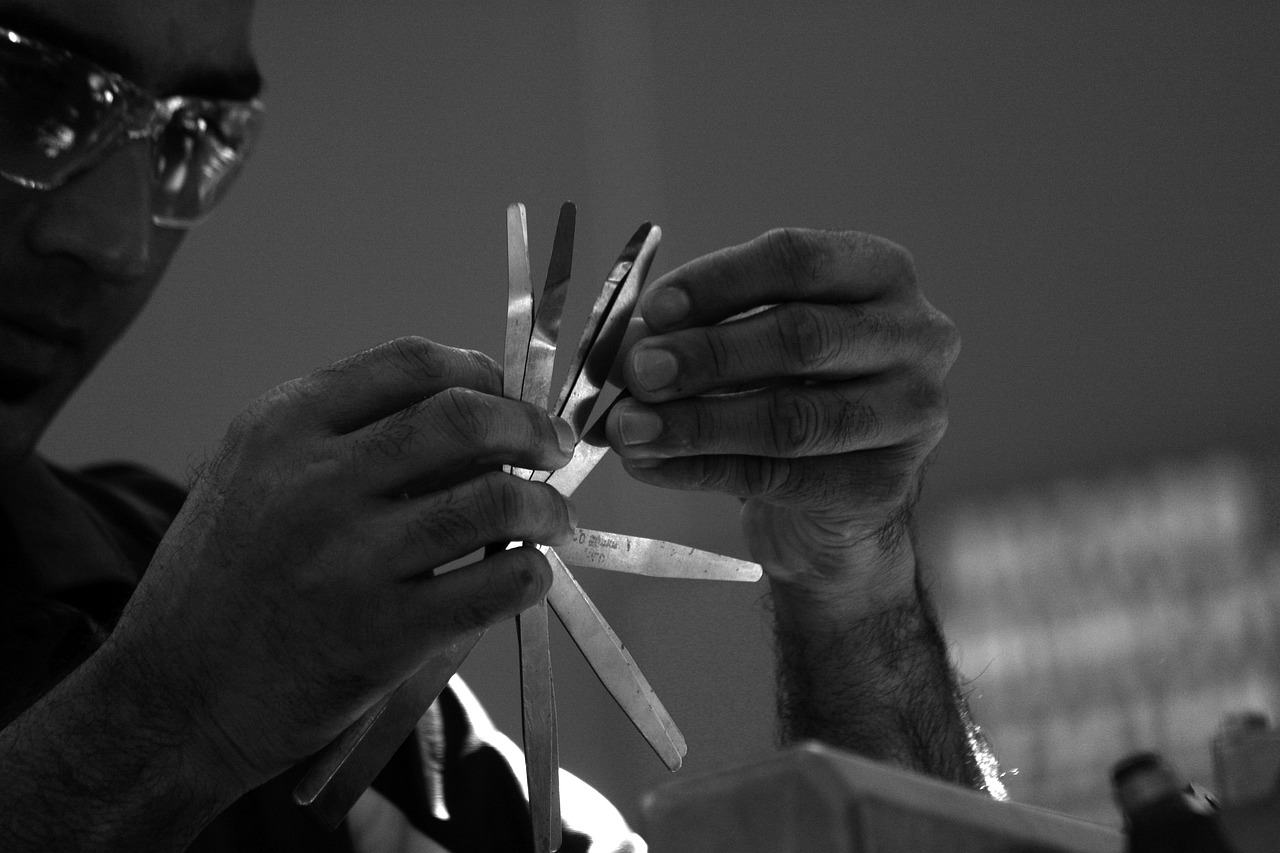
Choosing the Right Inspector
When it comes to ensuring the safety of your home, selecting the right inspector can feel like finding a needle in a haystack. You want someone who is not only qualified but also trustworthy and thorough. After all, this is about the safety of your loved ones and your investment. So, how do you sift through the options? First, consider their experience. An inspector with years of hands-on experience is more likely to spot potential issues that a less seasoned inspector might overlook. Additionally, check for relevant certifications. This can vary by state, but certifications from recognized organizations can be a good indicator of an inspector's credibility.
Next, don’t shy away from asking for references. A reputable inspector should be willing to provide you with testimonials from previous clients. This not only gives you insight into their work ethic but also helps you gauge how satisfied others have been with their services. Moreover, consider the inspector's approach to their work. Do they take the time to explain their findings thoroughly? A good inspector should be able to walk you through their process and provide you with a comprehensive report that details any issues found during the inspection.
Here are a few questions you might want to ask before making your decision:
- What certifications do you hold?
- How many inspections have you completed?
- Can you provide references from past clients?
- What is your inspection process like?
- Will I receive a written report, and how soon can I expect it?
Lastly, don’t forget to check online reviews and ratings. Websites like Yelp and Angie's List can provide valuable insights into the inspector's reputation. A few bad reviews might not be a deal-breaker, but a pattern of negative feedback should raise a red flag. By taking the time to do your research, you can ensure that you choose an inspector who will provide you with a thorough and accurate assessment of your home’s safety.
Q: How often should I have a home safety inspection?
A: It's generally recommended to have a home safety inspection at least once every few years, or after major renovations or changes in ownership.
Q: What should I expect during a home safety inspection?
A: An inspector will evaluate various aspects of your home, including electrical systems, plumbing, structural integrity, and safety features like smoke detectors.
Q: Are home safety inspections expensive?
A: The cost of a home safety inspection can vary based on location and the size of your home, but it is often a worthwhile investment for peace of mind.
Q: Can I perform a home safety inspection myself?
A: While you can conduct a basic inspection, it's best to hire a professional who has the expertise to identify hidden hazards.
Q: What if the inspector finds issues?
A: If issues are found, the inspector will provide a detailed report, and you can then prioritize repairs based on safety and urgency.

Qualifications to Look For
When it comes to choosing a home inspector, understanding the qualifications that matter is essential for ensuring a thorough and reliable safety assessment. Firstly, you should look for inspectors who possess relevant certifications from recognized professional organizations. These certifications indicate that the inspector has undergone rigorous training and adheres to industry standards. For instance, certifications from the International Association of Certified Home Inspectors (InterNACHI) or the American Society of Home Inspectors (ASHI) are well-respected and signify a commitment to quality and professionalism.
Experience is another crucial factor. An inspector who has been in the field for several years is likely to have encountered a wide range of issues and can provide insights that a novice might miss. It’s wise to ask potential inspectors about their years of experience and the number of inspections they have completed. This not only helps gauge their expertise but also gives you confidence in their ability to identify potential hazards in your home.
Additionally, consider the inspector's specializations. Some inspectors may focus on specific areas such as mold detection, pest inspections, or energy efficiency. If your home has unique features or concerns, selecting an inspector with relevant specialization can provide added value. For example, if you suspect mold issues in your basement, an inspector with a background in environmental hazards would be beneficial.
Furthermore, don’t overlook the importance of reviews and references. A reputable inspector should have positive feedback from previous clients. You can check online reviews or ask for references to get a sense of their reliability and thoroughness. A good inspector will be more than willing to share testimonials or connect you with past clients who can vouch for their work.
Lastly, it’s essential to understand the inspection process itself. Ask potential inspectors what their inspection entails, how long it will take, and what type of report you can expect afterward. A comprehensive inspection should cover various aspects of your home, including structural integrity, electrical systems, plumbing, and safety features. Ensuring that the inspector follows a detailed checklist can help you feel secure in the thoroughness of the assessment.
In summary, when searching for a home inspector, pay attention to certifications, experience, specializations, reviews, and the inspection process. These qualifications will help you find a professional who can provide a thorough evaluation of your home, ensuring that it remains a safe haven for you and your family.
Q: How often should I have a home safety inspection?
A: It's recommended to have a home safety inspection at least once every few years, or whenever you make significant changes to your home, such as renovations or after major weather events.
Q: What should I expect during a home safety inspection?
A: Expect a thorough examination of your home’s structure, systems, and safety features. The inspector will provide a detailed report outlining any issues found and recommendations for repairs or improvements.
Q: Are home safety inspections expensive?
A: The cost of a home safety inspection can vary based on location and the size of your home, but it is generally a small price to pay for the peace of mind it provides. Think of it as an investment in your home’s safety and value.
Q: Can I perform my own home safety inspection?
A: While you can certainly do a preliminary check of your home, it's advisable to hire a professional for a comprehensive inspection. They have the expertise and tools to identify issues that may not be apparent to the untrained eye.

Questions to Ask Before Hiring
When it comes to hiring a home inspector, asking the right questions can make all the difference in ensuring you get a thorough and reliable assessment of your property. You wouldn't jump into a new relationship without getting to know the other person, right? The same principle applies here. So, what should you ask? Here are some key questions to consider:
First, inquire about the inspector's experience. How long have they been in the business? A seasoned inspector often has a wealth of knowledge that can be invaluable during the inspection process. You might also want to ask about the types of properties they have inspected. Different homes can present unique challenges, and an inspector familiar with your home's style will likely know what to look for.
Next, it's essential to discuss their certifications and qualifications. Do they belong to any professional organizations? Being part of associations like the American Society of Home Inspectors (ASHI) or the National Association of Home Inspectors (NAHI) can indicate a commitment to continued education and adherence to industry standards. You might also want to ask about their insurance. A reputable inspector should carry liability insurance to protect both themselves and you in case of any oversight.
Another crucial question revolves around the inspection process. What does their inspection entail? A thorough inspector should provide a detailed breakdown of what areas they will cover, including major systems like plumbing, electrical, and roofing. Furthermore, ask about the reporting format. Will you receive a written report, and how soon after the inspection can you expect it? A well-structured report can help you understand any issues and prioritize repairs.
Lastly, don't forget to ask about costs. While you shouldn't choose an inspector solely based on price, understanding their fees upfront can prevent any surprises later. Some inspectors might charge extra for additional services, so it's wise to clarify what is included in the quoted price.
In summary, hiring a home inspector is a critical step in ensuring your home is safe and sound. By asking these questions, you can make an informed decision and choose someone who will provide a comprehensive assessment of your property. Remember, a little due diligence now can save you a lot of headaches down the road!
- How often should I have a home inspection? It's recommended to have a home inspection every few years, especially if you live in an older home or have experienced significant weather events.
- Can I attend the inspection? Absolutely! In fact, it's encouraged. Being present allows you to ask questions and learn more about your home's condition.
- What if the inspection reveals problems? If issues are found, you can negotiate repairs with the seller or adjust your offer accordingly.
- How long does a home inspection take? Typically, a home inspection can take anywhere from 2 to 4 hours, depending on the size and condition of the home.
Frequently Asked Questions
- What is a home safety inspection?
A home safety inspection is a comprehensive evaluation of a residence to identify potential hazards and ensure the safety of its occupants. It covers various aspects, including electrical systems, fire safety, and structural integrity, helping homeowners maintain a safe living environment.
- Why are home safety inspections important?
Home safety inspections are crucial because they help identify hidden dangers that could lead to accidents or injuries. By addressing these issues proactively, homeowners can protect their families, reduce the risk of costly repairs, and enhance the overall value of their property.
- What common hazards are found during inspections?
Common hazards include faulty wiring, overloaded circuits, mold growth, and inadequate fire safety measures. Identifying these issues during an inspection allows homeowners to take corrective action before they escalate into serious problems.
- How often should I have a home safety inspection?
It's recommended to have a home safety inspection at least once a year, especially if you live in an older home or have experienced recent changes, such as renovations or new appliances. Regular inspections help ensure that your home remains safe and well-maintained.
- What qualifications should I look for in a home inspector?
When choosing a home inspector, look for relevant certifications, experience in the field, and positive reviews from previous clients. A qualified inspector should have a thorough understanding of safety regulations and a keen eye for detail.
- What questions should I ask before hiring an inspector?
Before hiring an inspector, consider asking about their experience, the inspection process, what areas they will cover, and how long the inspection typically takes. This ensures you have a clear understanding of what to expect and helps you choose the right professional for your needs.
- Can a home safety inspection save me money?
Absolutely! By identifying potential issues early, a home safety inspection can help you avoid costly repairs down the line. Additionally, maintaining a safe and well-kept home can lead to lower insurance premiums and increased property value.


